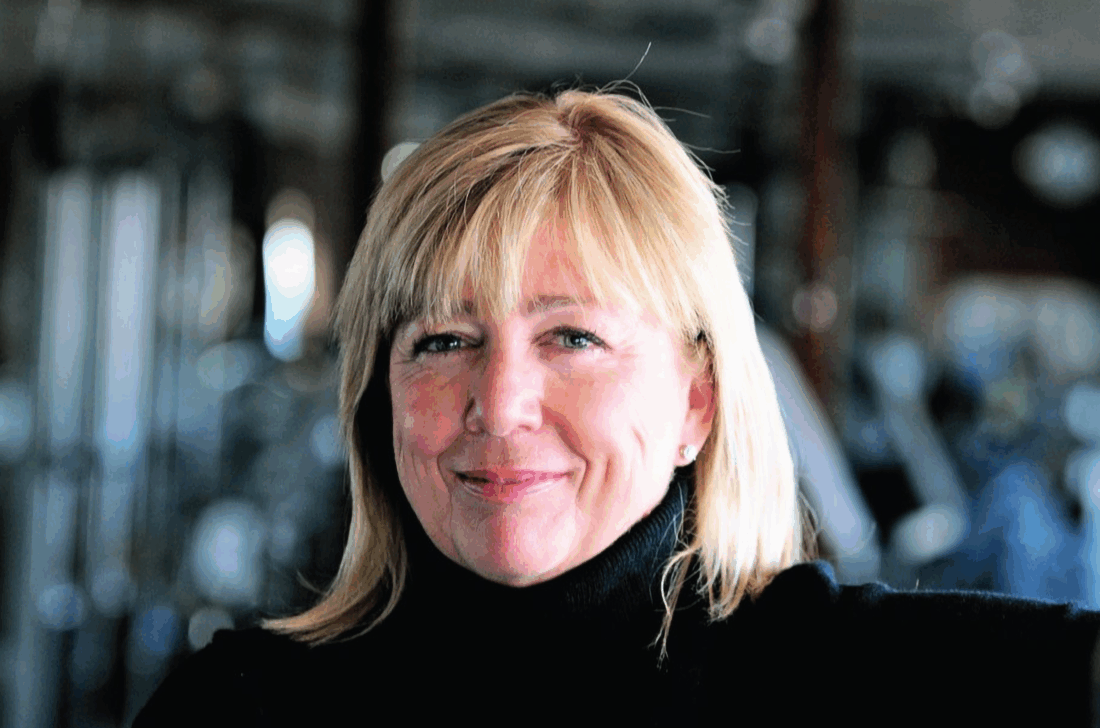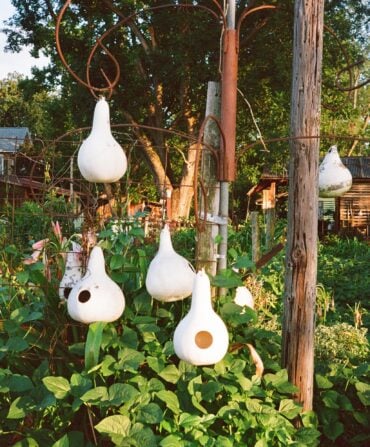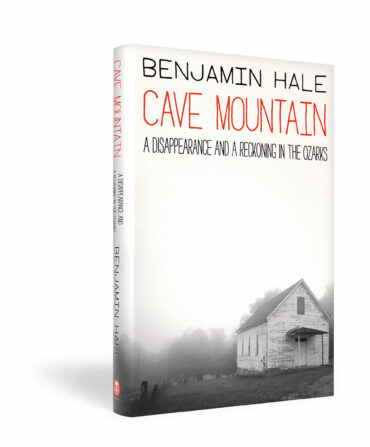Each morning, when the world is still, Mary Berry rises with the chickens—and sometimes before them—and gets to work. There are farm chores to do. By the time she reaches her office at the Berry Center in New Castle, Kentucky, at 7:00 a.m., she is ready to turn to another type of work: advocating for farmers and their communities.

In the fourteen years since the Center was founded in 2011, Berry has become one of the nation’s leading voices for stable farming economies and cultures through her writing and the initiatives she has spearheaded. With the enduring leadership of her father—the writer, farmer, and advocate Wendell Berry, who has been hailed as a visionary for his warnings about the rise of consumerism, industrial agriculture, and the fraying of rural communities—the Center’s Farm and Forest Institute seeks to provide farmers with an education in “holistic and place-based” agrarian philosophy and methods.
What’s more, the affiliated cooperative, Our Home Place Meat, allows livestock farmers to sell grass-fed meat to regional markets and businesses—and has led to the conservation of over 2,000 acres of farmland. And in a nod to the Berry family’s literary legacy, the Agrarian Culture Center and Bookstore hosts literary events and has distributed more than 1,400 books around the country through its Agrarian Literary League, while an archive houses manuscripts and artifacts recording 120 years of rural history.
Tours of the Center are available to visitors on Wednesday and Friday afternoons, during which time the archive is also open for casual research. (Scholars should reach out to the Center to book longer appointments.) Spring courses devoted to such topics as low-impact forestry training and draft animals are currently in full swing. One of the Center’s marquee events, Arts and Letters Day, which features readings from celebrated Kentucky writers, takes place each fall. “They’re coming here every day, getting up every morning to solve the problems that are inherent in [agrarian communities],” Berry says of the Center’s employees and students.
As a journalist who often writes about politics, culture and place, and as a professor at Berea College, which has deep agrarian roots and a commitment to environmental sustainability, I wanted to speak with Mary Berry about what she thinks lies ahead for farmers. Our conversation, edited a bit for length and clarity, follows.
You’re the eighth generation of your family to farm in Henry County, Kentucky. How do you see your work at the Berry Center as building on the legacy of those generations and putting your father’s ethos, words, and example into practice?
I’m the descendant of many generations of placed people. Our family’s public life didn’t begin really until my grandfather’s memory of his father going to sell his 1906 tobacco crop in Louisville and coming home with nothing after the sale of that crop. And my grandfather, John Berry Sr., said then, “If I can do something about this, I’m going to,” and he did. [John Berry moved to Washington, D.C., and earned a law degree from the George Washington University before returning to Kentucky. He was the principal author of the New Deal–era agricultural legislation about tobacco, the Burley Tobacco Program.]
I turn in my mind to him daily…His work brought stability to our people for many, many generations. My father says he and his brother John just took up their father’s work, and the Berry Center has now taken that up.
That reminded me of something your father said in his Jefferson Lecture: “There is no distinction between the fate of the land and the fate of the people.” How do you see that observation playing out today on a local level, but also on regional and national levels?
I started the Berry Center because I was so worried about how quickly we were losing farmers’ farmland—but not just farmers and farmland. There was enmity between neighbors and friends. We were a pretty solidly agrarian community, all of us raising tobacco or a part of small businesses that served tobacco farmers. The people around here were very different—a lot of differing political views.
When our agrarian life began to fall apart here—meaning we lost the tobacco program, we were losing small dairies, things were so unsettled—then differences between people—political differences, differences of opinion about social issues and so on—suddenly were big problems. When the population became unsettled, then those political differences became the most important thing. We didn’t have enough in common anymore and I think that is representative of what’s happening in the entire country. People are unsettled, and when people get unsettled they get scared.
Our attempt here [at the Berry Center] was to go to work—to take an inventory of what we have to work with, what’s still here. We still had some passionate, good farmers. We have a well-watered landscape. We have something left in agrarian culture.
I’ve heard Wendell say that we’re all complicit in this in some way. How can we think about our roles as citizens?
I wonder if it would be possible…that if people are working, if they go to work where they are, if we would begin to see more effect. If I think of myself as a global citizen, what difference does it make what I do and what I don’t do when you get right down to it? I mean, it does matter, but on the other hand, when you take my life and take it down to where I work every day, the farm I live on, then what I do matters, absolutely. So I think people have been pretty conditioned to think globally—even though they “think globally and act locally,” I hear that a lot. I still think people are waiting for big solutions; we’re just suckers for big solutions…
Maybe the solution is just beginning to really know where you are. Get to know the place, the people, the plants, the animals, the waterways. It’s not hard to do. And it’s lovely. Then you begin to be able to see how you affect things. Maybe that would take people outside of themselves a little bit and taking part a little more. I really have no trouble with hope anymore…I get mad and occasionally shocked, but I’m hopeful.
Well, two things there stand out to me. Number one, it sounds like you’re saying this change is going to take more than just going to the farmers’ market on weekends.
Yes sir.
And I’m wondering—I saw your face light up and I heard your voice change when you talked about being hopeful. I mean, you were adamant about that.
First of all, I think for those of us who love younger people—my duty is hope. Nobody knows for sure what’s going to happen, and all of the people telling the future all the time aren’t helping anything.
I was born to people who believed that this is so important. I think this may be the most important thing that my family taught me: What’s happened here, what’s happened to our people, to our land, has not been inevitable. It’s been destruction by design. And I find that actually helpful. If the design is wrong, the design can be changed, and we have models in our history that can help us with the change.
I have seen change. I have seen a group of farmers come together and start as a silent group in a room, waiting to see what we had in mind, to a room full of young farm families that you can’t keep quiet. They’re talking about genetics and pasture health and soil health and the future of our program, and they have some hope that they might be able to farm full-time. My daughter Virginia runs our reading program. She’s had people say, I’ve not read a book before, and now I find these agrarian books that tell our story with respect. We’re not used to respect.
I’m seeing a lot of similar things with my students at Berea College. Many are from Appalachia or rural Kentucky, and so many of them are so determined to return to where they’re from, and to change things and give back.
That is so wonderful that you’re seeing that because education in this country has been treated as a vehicle of upward mobility for way too long. And now we need education in homecoming—how we [have] to live in particular places and live well in them and do as little harm as possible and as much good as possible. And to be joyful in those places.
Another thing I got from my family is a contentment with where you’re from. I don’t think everybody has that. And I know some people can’t stay home, but people can make a home somewhere. The poet Gary Snyder says, Just stop somewhere and make a home be a home.
Full disclosure, I’m one of the restless ones…I often think about that and how Americans tend to be restless—how that might seem to be woven into our character. I’m wondering what we can learn from agrarian life today as a culture that tends towards being restless and mobile?
I do think that we’ve had a kind of mistaken notion of what culture is. We all know, I think, what high culture is, and in this country now some of us hate it and some of us love it, but we’ve got some idea about it. But “the art of the commonplace”—that is, the art, the culture by which we live, connects us to a place, to each other. Cooking, tending house, raising food. Those kinds of things are what we have neglected as we’ve concentrated on the high culture and neglected the culture that we’ve actually got to have.
To my mind, the agrarian ideal—the idea that we live in a land ethic, that what’s good for the health of the land is good for us—all that is true, it turns out. So, we tell our students here, If you want to farm, you’re going to have to learn to take absolute pleasure in the place that you are. I think if you can learn to be satisfied and fascinated by the place where you are, contentment is possible, and from contentment, it seems to me, joy is then possible.
Jason Kyle Howard is the author of A Few Honest Words: The Kentucky Roots of Popular Music and co-author of Something’s Rising: Appalachians Fighting Mountaintop Removal. His work has appeared in The New York Times, The Atlantic, POLITICO Magazine, The New Republic, Salon, The Nation, Washington Monthly, and other publications. He directs the creative writing program at Berea College and serves on the faculty of Spalding University's Naslund-Mann Graduate School of Writing.








